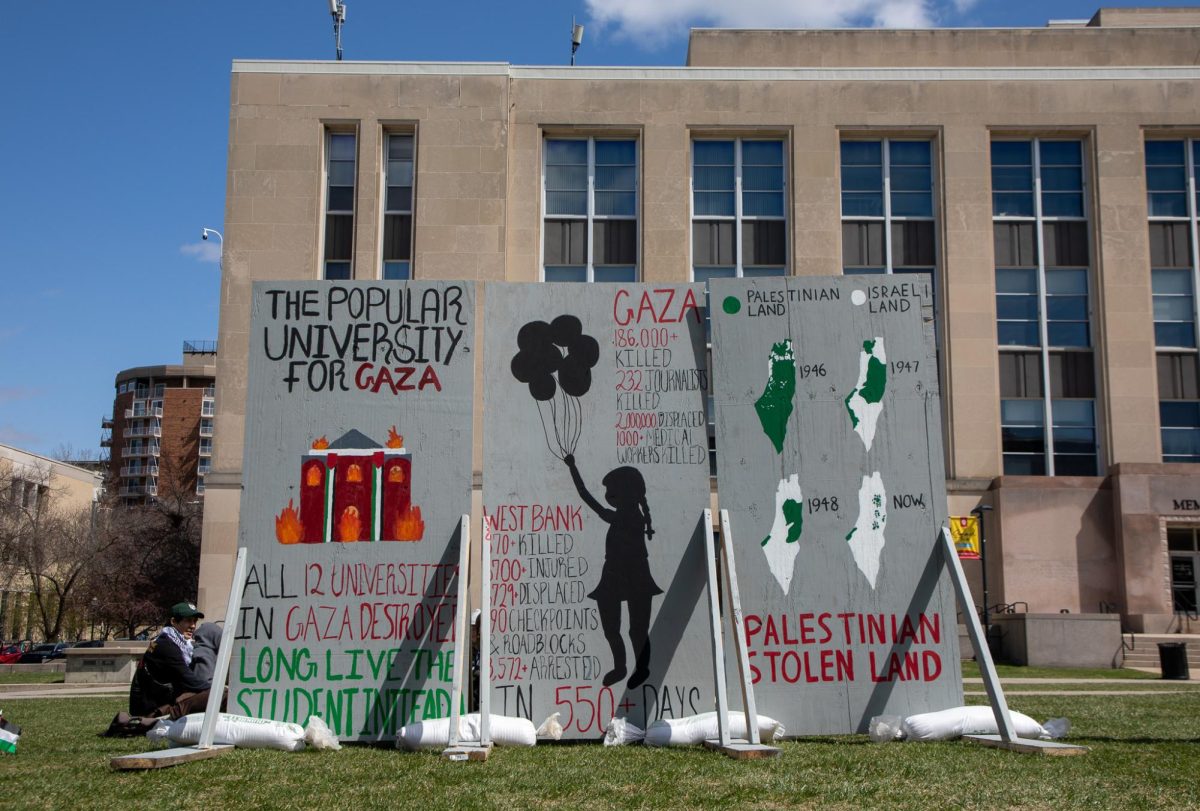Students for Justice in Palestine began the University of Wisconsin Against Apartheid Week on Monday with a mock apartheid wall display and a teach-in aimed at raising awareness of Israel’s policies and actions toward Palestine, which some consider apartheid.
The event, held on Library Mall, featured a mock apartheid wall, which is a visual representation of the barrier built by Israel in the West Bank.
From 9 a.m. to 4 p.m., students could observe the wall, which was covered in artwork and messages about the conditions Palestinians experience.
Conflict between Israel and Palestine dates back to World War II. Negotiations were aimed at creating Palestinian self-rule over certain territories, but the Israeli and Palestinian nations failed to reach a final agreement, according to the Council on Foreign Relations.
Alongside the wall display, SJP hosted a campus teach-in at 2 p.m., inviting students and faculty to engage in a discussion about apartheid as a global system of oppression, including its roots in South Africa and connecting it to Palestine today.
“I think that Zionism has embedded itself more thoroughly in manufacturing among American logic,” one SJP member said.
According to speakers at the teach-in, American public opinion has been shaped by dominant narratives that encourage the acceptance of certain political stances, particularly concerning U.S. support for Israel. This often marginalizes or disregards Palestinian perspectives.
Additionally, the teach-in discussed the differences between injustice and oppression, along with the differences in perspectives on apartheid.
Speakers also pointed out how global politics have influenced U.S. social movements in the past, showing how international pressures can impact domestic change.
“One of the reasons the Civil Rights movement was successful and why the apartheid struggle against South Africa was successful here is because the U.S. was engaged in the Cold War with Russia and they wanted to win allyship with African countries,” a speaker said.
Drawing on these historical parallels, the teach-in encouraged students to consider how global solidarity and political context can influence liberation movements.
The teach-in concluded with calls for continued activism. SJP encouraged attendees to critically examine foreign policy and its role in the conflict between Palestine and Israel.
UW Against Apartheid Week will continue with a series of events aimed at educating and mobilizing the campus community around Palestinian solidarity and global justice.



